Note to readers: This post was written in December of 2011. PLEASE do not ask me why I eat ‘this’ or why I don’t eat ‘that’ — as what is shown here does not necessarily reflect what or how I eat today (or more importantly, how you should eat). My diet evolves constantly, due to my constant tweaking and self-experimentation. Over time, I’ll share it here and there, but what I eat is not at all the focus of this blog. I ask that you refrains for pursuing questions about what I eat in the comment section.
Once people start to “get it” with respect to why carbohydrate reduction, or all-out restriction, leads to good things, the inevitable question I’m asked is, “So….what exactly do you eat?” I’m always a bit hesitant to get into this. It’s sort of like asking a pilot, “So…how do you fly this plane?” It’s a great question, but probably the wrong first question.
For many people it’s so overwhelming to contrast what they currently eat – probably a typical American diet of 500-600 daily grams of carbohydrates (200 grams of which are sugar) – with a diet of less than 50 daily grams of carbohydrate, which is what I consume. Remember, what I’m showing you here is what I have been eating for about the last 7 months. For the first 20 months of my nutritional transformation, I was gradually reducing carbohydrate intake from about 600 daily grams to 300 daily grams to 150 daily grams.
It’s really important to understand that carbohydrate reduction is a continuum. There is no “right” amount of carbohydrate to eat. Let me illustrate this with the following “2 by 2” matrix, below (sorry, once a consultant, always a consultant). When asking the question, “How much should I reduce my intake of carbohydrates?” it’s a good idea to start with two broader questions:
- What is my inherent level of insulin resistance?
- What are my goals?
There are technical ways to quantify the answer to the first question, which I will detail in future posts. However, the simple version of determining your inherent amount of insulin resistance is checking how many criteria of metabolic syndrome are present. In other words, are you overweight? Is your waist large? Is your blood pressure high? Do you have elevated blood glucose or triglycerides (these are determined from a standard blood test)? Do you have low HDL cholesterol? For the purpose of this question, even responding “yes” to one of these questions means you are predisposed to being insulin resistant. I was a “yes” to 3 of these questions.
Consider this matrix, and let’s use me as an example.
- How predisposed am I to insulin resistance? One look at a picture of me in my non-lean state, coupled with an understanding of my family history, and it’s clear I didn’t hit the genetic lottery with respect to insulin resistance. Hence, I am towards the right of graph.
- What am I optimizing for? Some folks want to lose 15 pounds. Others want to have fewer swings in daily energy level, or stop taking their blood pressure medicine. In my case, I want to maximize as many variables as possible: I want to be as lean as I can; I want to cure my insulin resistance; I want to be sure I never have a single symptom of metabolic syndrome; I want to do everything I can to avoid cancer and Alzheimer’s disease; I want to be metabolically flexible. Hence, I am towards the top of the graph.
As you can see, based on my poor genes and lofty goals, I find myself in the upper right square, which means I need to adopt the greatest amount of carbohydrate restriction. My wife, in contrast, has good genes, coupled with high goals, placing her in the upper left box. As a result of this combination, she does not need to restrict carbs as much as I do. If her goals were even more modest, she could get away with very little reduction in carbohydrates – probably just reducing sugar without much reduction in starch.
Below is a picture of a few of the foods you’ll typically find in my refrigerator. Note that on average I consume about 4,000 to 4,500 calories per day. I get this from approximately 400-425 grams of fat, 120-140 grams of protein, and 30-50 grams of carbs. In addition, there are a number of supplements I consume daily, which I describe in the table below. In future blog posts I will go into greater detail as to why I consume each of these supplements, but for now I’ll give a very quick explanation.
Finally, note that under no circumstance do I ever count calories (for the sake of limiting them). When I was first transitioning into ketosis I did need to count how much carbohydrate and protein I was consuming – anything over about 50 grams of carbs and 150 grams of protein makes it difficult to generate sufficient ketones – but I do not ever count calories for the sake of restricting them. I eat when I’m hungry. I don’t eat when I’m not hungry.
Regular supplements I consume every day
*I will be writing a great deal about the role of omega-6 and omega-3 fatty acids in our diet in subsequent posts. However, if you want a quick (albeit high-level and not overly nuanced) overview of the topic, take a look at what Dr. Andrew Weil and Livestrong have to say about it.
One last point on supplements – I do not take a multivitamin at this time, but I am looking into it a bit more closely. My concern is that 1) they may not be necessary when you remove glucose from your diet (I’ll write about why in the future), and 2) they may actually do direct harm, as a result of contaminants.
Ok, at long last, here is a list of what I ate over the past 5 days (excluding water, still and sparkling, which I consume about a gallon of each day)
Wednesday
Breakfast: “Fat shake” (In a blender: 8 oz heavy whipping cream, 8 oz sugar-free almond milk; 25 gm sugar-free hydrolyzed whey protein, 2-3 frozen strawberries)
Lunch: About 4 or 5 oz of assorted cheese (Gouda, Swiss, Manchego), 2 or 3 oz olives, about 4 oz of particularly fat salami and pepperoni
Late afternoon: About 2 oz of mixed nuts (almonds, walnuts, peanuts), large latte (latte made with heavy fat cream instead of milk) at Peet’s
Dinner: Garden salad with olive oil (lots of extra oil) and balsamic vinegar dressing, about 6 oz grilled salmon with a lot of butter and lemon juice
Thursday
Breakfast: Scrambled eggs (6 yolks, 3 whites**, with added heavy fat cream) cooked in coconut oil, 3 or 4 sausage patties (be sure to look for brands not cured in sugar).
Coffee with homemade whip cream (heavy fat cream hand whipped)
Lunch: Half chicken (thigh, breast, wings) with lots of skin; about 2 oz of Gouda and aged-cheddar
Dinner: Wedge blue cheese salad with bacon; 12 oz prime rib with lots of butter; 5 or 6 pieces of asparagus coated in butter
Coffee with half and half cream, 2 cups (the restaurant did not have heavy cream, so I had to settle for half-and-half)
**The reason I typically minimize egg whites, at least when making my own eggs, is to ensure I keep protein intake under about 125 grams per day. Ketosis is pretty easy to attain if one is eating, say, 2500 calories per day. However, given my caloric demands – and the requirement that I keep protein intake limited – I really need to go out of my way to ensure I’m not eating too much protein. I will be writing about this in much greater detail in a future post.
Friday
Breakfast: Whole fat latte at Starbucks (made same as above), scrambled eggs (about 4 eggs), bacon (high fat pieces), slice of Swiss and slice of cheddar (since I was eating in the airport, the scrambled eggs were made “normally,” not with the additional fat I use when making my own)
Lunch: About 4 oz of especially fat salami and pepperoni, about 2 oz Parmesan cheese
Dinner: Ground beef sautéed with heavy cream, onions, broccoli, and melted cheese
2 large cups of decaf coffee with homemade whip cream (heavy cream whipped with a touch of xylitol)
Saturday
Breakfast: Scrambled eggs (6 yolks, 3 whites, with added heavy fat cream) cooked in coconut oil, 3 or 4 pieces of especially fat bacon (not cured in sugar), about 3 oz of cream cheese
2 cups of coffee with heavy cream
Lunch: Tomatoes with basil and mozzarella and balsamic vinegar and olive oil, about 2 oz raspberries with homemade whip cream
Dinner: Leftover ground beef sautéed from previous night, salad with homemade cream dressing (whole fat Greek yogurt, olive oil, basil, blue cheese, garlic)
1 cup of decaf coffee with homemade whip cream
Sunday
Breakfast: Omelet (6 yolks, 3 whites, coconut milk, sautéed onions) cooked in coconut oil, 4 or 5 pieces of the fattest bacon I can find
2 cups of coffee with heavy cream
Lunch: Plate of assorted cheeses (aged Gouda, Swiss loaf, aged Parmesan – about 3 oz), about 2 oz salami, about 1 oz olives
Dinner: Cream of mushroom bacon soup (heavy cream, chicken broth, shredded Parmesan cheese, mushrooms, chopped bacon, garlic, butter, chopped papers, various spices), leg of lamb (baked in sauce made of red wine, balsamic vinegar, diced tomatoes, garlic, and a lot of spices)
2 cups decaf coffee with homemade whip cream (as above)
So there you have it — 5 days in the eating life of Peter Attia. This may look a bit strange, relative to what you may be eating now, but remember, I’m at the far end of the spectrum – i.e., nutritional ketosis. You may just be starting your own journey of reducing carbohydrates, but I hope this gives you an idea of what I eat. In particular, what probably stands out is:
- I go to great lengths to avoid sugar which, unfortunately, shows up in virtually every highly processed food.
- I eat zero starch (e.g., bread, cereal, rice, crackers, pasta).
- I consume only modest amounts of fruit (one serving per day, at most, and only in the form of berries, which contain the least amount of fructose).
- I eat vegetables, but primarily because they are a great way to get more fat (e.g., high-fat salad dressings, butter), not because I “need” them.
- I go out of my way to eat as much fat as possible, especially monounsaturated and saturated fat (the only fat I avoid is omega-6 polyunsaturated fat).
- I have a few “go to” meals that I eat several times per week. I do this because I really like them and it’s quick and easy make them. Yours need not be the same!
Photo by Glen Carrie on Unsplash

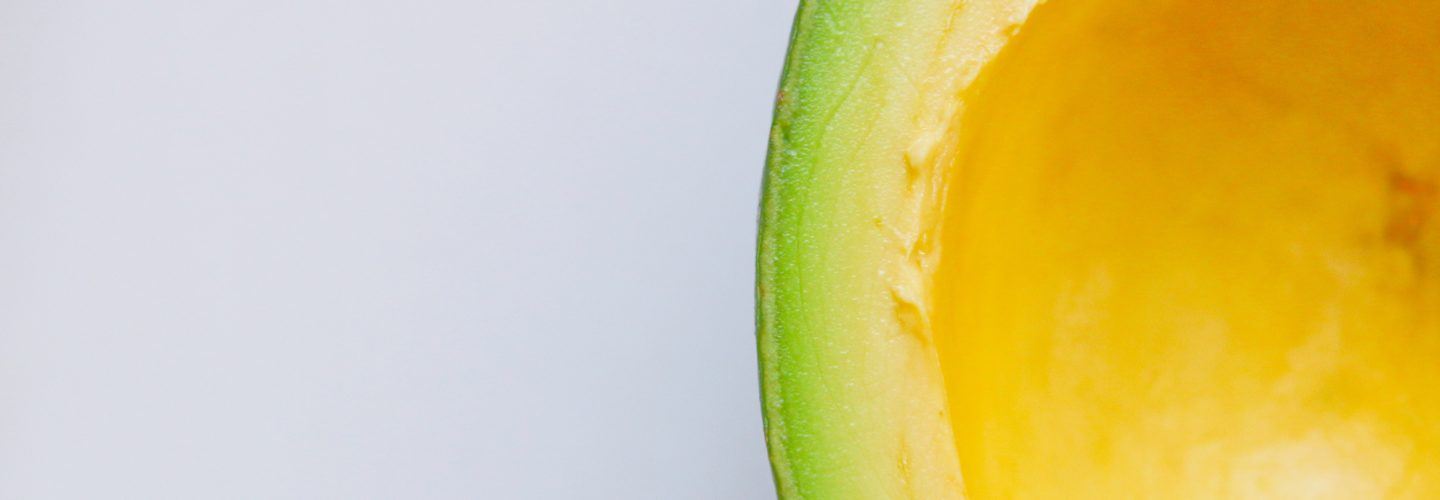
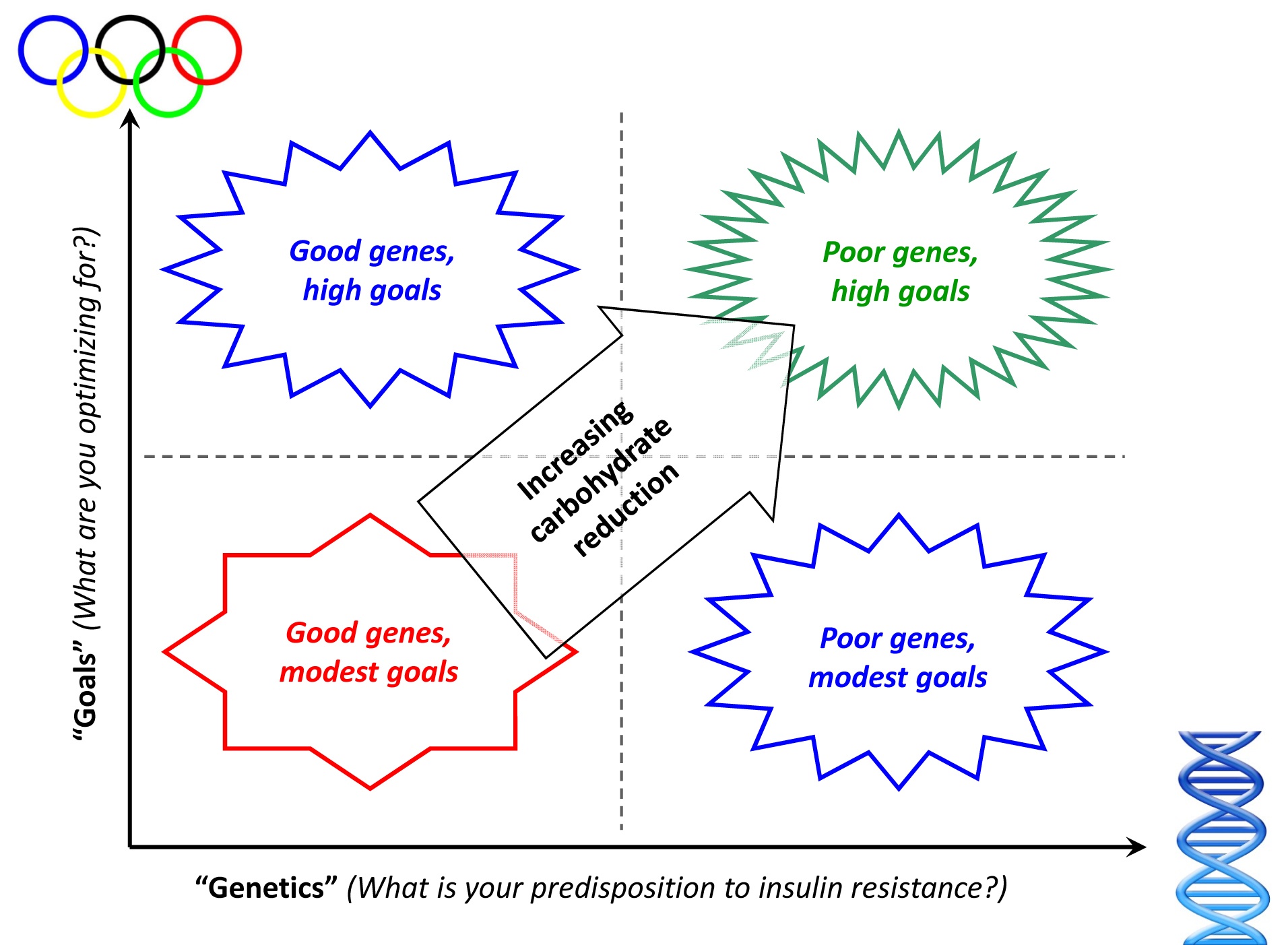

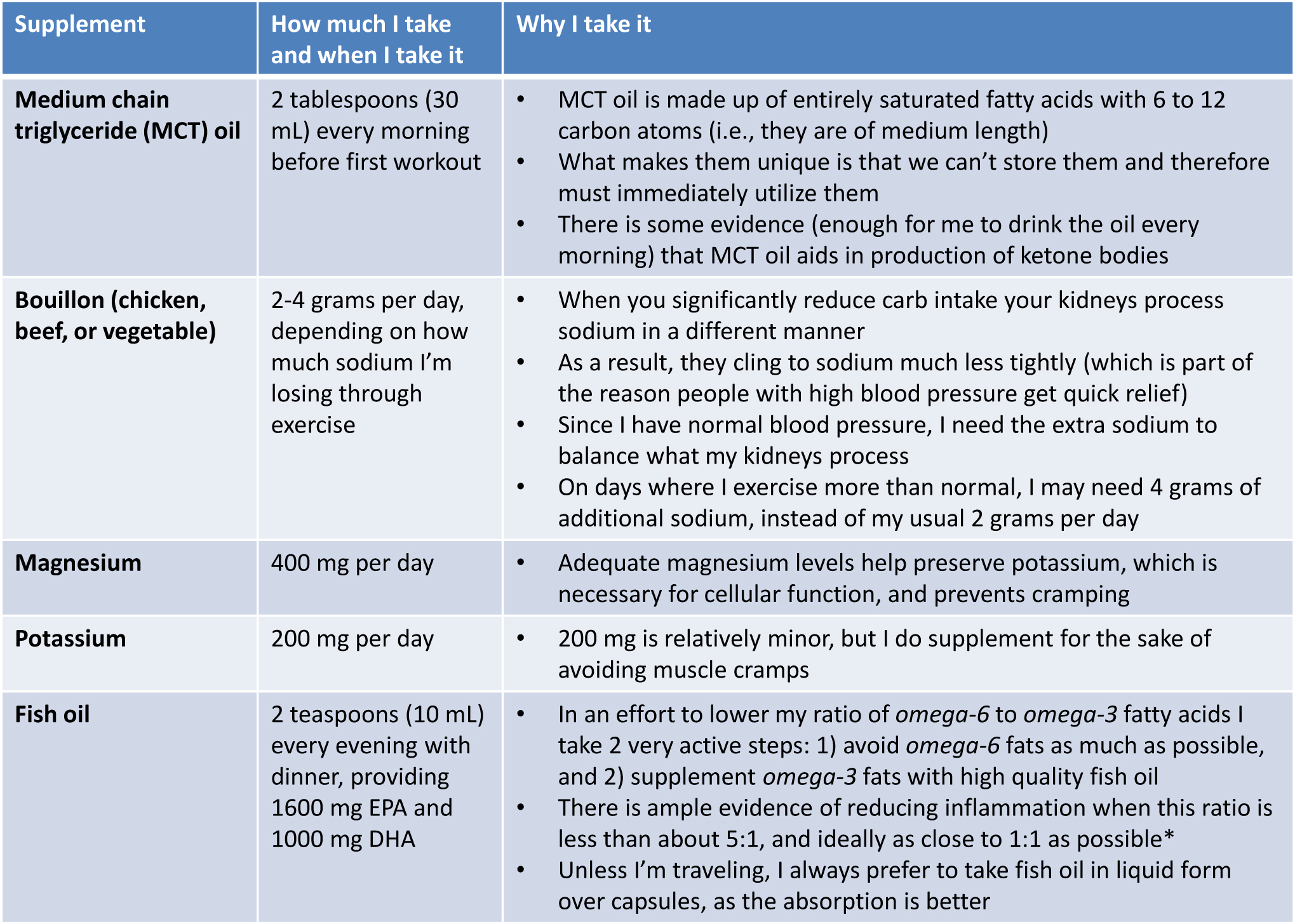

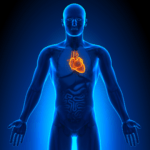
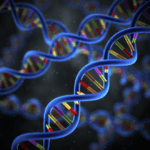
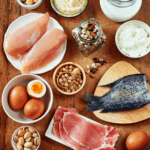
Have you ever tried crema (30% fat at the grocery store near me) or creme fraiche (35% fat at the grocery store near me) instead of part of the whipping cream in your fat shake? I found I missed the tanginess from yogurt in smoothies and this replaces it nicely.
Peter,
Your website is exactly what i need, thank you so much!
I used to race at a pro level in road cycling. I’ve even spent 2 months winter 2010 training your roads, including yes, Mt. Palomar… before the strava days. I’ve been doing the ketogenic diet 2+ months, the first 2 were pretty much hell. I didn’t ride/workout but i think now i’m adapted to it and plan to attempt to get back into riding. It made my morning watching you push a massive tire around.
Do you eat anything during your rides, say even if you did a ride over the course of 5 hours? Or take anything with you incase you feel a bonk coming on?
big thanks for your website and all the info,
Alison
Yes, on a short ride (<2-3 hours), I just use water. On longer rides I alternate between super starch and very salty nuts (with lots of water). See posts on interplay of exercise and ketosis (2 parts).
I thank you fro providing the answers in the form of too much protein and too little salt. My struggle is being one fo the “normal” people who is lactose intolerant. I’d be in as much distress as you were with your back if I ate dairy like it seems one has to, to be able to get as much fat as required. I guess I could combine high levels of coconut oil with the daitry and they might cancel out, but have you come across this before and do you have any ideas?
I have started reading through the website, and for me timely. Do you know of a dietician or medical/health practice that provides consultative help to assist in developing a plan and track progress in OC (or even San Diego)? My issues are almost exactly as you describe with weight and over the last two years I have seen an increase in LDL (and related). My Dr prescribed a low dose of statins but I would like to avoid that road. I have been following Zone guidelines and have extremely low systemic inflammation issues (as per blood test) but slowly adding excess lbs to a 20% body fat and beginning to have concern for insulin issues. Any suggestions or direction as to resources (including recipe books) would be appreciated.
Frank, I’m working very hard to recruit the best RD (registered dietitian) I know out to San Diego (where I live) from NY (where he lives). If I can get him to come out here, I would love to expand my work with clients, both locally and remotely. Until then, I’m not really plugged in to the “scene” down here.
Hi, you said you use hydrolyzed whey protein. I’m just curious what your thoughts are on beef protein, as whey protein has been shown to be the most insulinogenic protein I believe.
Pro fitness model Rob Riches who recently switched his competition preparation diet to paleo at the beginning of the year also uses beef protein instead of whey protein. I can only assume his switch to beef was influenced by the thought that it is less insulinogenic.
I’m ambivalent about this (personally). I use whey post workout and a bit of insulin spike is ok, especially for anabolic purposes.
Hi Peter,
I spent today figuring out what I need to do to in setting up ketosis diet. Then I found your site and I notice that you use much less protein than other sites were suggesting. I love all the data you have given. I have just re-started crossfit after 15 months inactivity. I am male, 51yo, 23% BF. My question is I am now unsure of what to do pre training, I was planning on taking about 25g gatorade or something 30″ pre workout.
I have been frantically searching through your posts to see what is the best thing to do pre HIIT weights workout?
can you help with that
cheers
Protein requirement is pretty complex topic, and it varies obviously by person and even within each person, by day and activity level. This is completely independent of ketosis. Ketosis just makes it a little bit harder, because your margin of error is much smaller — if you overshoot, you’ll know yourself out of ketosis.
thanks Peter I will experiment with P amounts
Would you comment (as a rule of thumb) how to assign CHO if doing something like CrossFit
i.e bolus of CHO pre training and or post training
and
if so do it matter at this stage (BF 23%) what type of carbs
cheers
Ian
Complex topic worthy of its own post.
Ahh yes! I would look forward to that. There is so much information out there now about Paleo/Ketosis and all the science and benefits, but much less on how to do it and tweak it to make it work well for people.
ps my 2006 2008 GTT had numbers almost like your initial GTT that you posted, so my goal now is to try to get the next one like your improved test.
thanks
Ian
Dr Attia and anyone else:
Why should we supplement while on KETO/PALEO nutrition if our thriving ancestors didn’t? Or, did they?
I have been keto myself for almost 6 weeks now. One short body-weight HIT (not HIIT) session every 5th day. Doing great with no supplements. Wondering if and why I should supplement.
Thank you.
Click here: AOL On – 105-Year-Old Woman Says Bacon Is Secret to Long Life 🙂
Love, just love, the description of your meal plans!! It’s so like my own, except for the bit where you go searching for the fattest versions of things, that made me laugh. It’s just that that kind of food and calorific intake makes most of my family’s and friend’s eyes roll with despair and disbelief, they think I’ll be dead soon, from a heart attack. The other thing about this way of life, is that the food is sooo godamn delicious! Veggies drenched in butter, berries in cream etc etc and this week I have just discovered almond milk! It’s fab!. Wanted to ask about iodine supplements as there seems to be a lot of talk about iodine and apoptosis (is that the right spelling) and most of us being deficient and it being highly protective against certain forms of cancer. Not sure about painting it on the skin, do you know if thats the best way or is there a good old fashioned pill? PS Thanks for the couple of meal ideas there too.
No expertise in that area, Liz.
Enjoyed watching you (online) at TEDMED. But what if one has high cholesterol and a strong fam Hx of CVD/CHF in addition to diabetes?
Hi Peter
I have to say that I am really impressed with your blog , I have a couple of questions that I hope you can answer ..
I was on the Ketogenic diet 2 years ago and I lost about 13Kilo in 3 months, that time I was exercising a lot, almost 5 days per week ..
Now with marriage and I am guess change of hormones as said by one of the nutritious , I gained 10 Kilos and I can’t get it off my body!! I have tried everything in the last couple of months. The calories controlling (1200 prepay) which left me hungry. The low fat one which was really hard to continue. I can’t live without eggs and butter..
so I thought to go to the ketogenic diet which was supported by my new nutrition. Bought a couple of books and replaced the white flour with almond …lots of meat and chicken… searched for everything low carb and organic
note that I am a metabolically sick individual. Anyways …I went back to the ketoginc and for 10 days I was so polite but the result was not..I gained weight esoically in the belly area…my guess is that it came from excess fat. I used to eat lots of cheese. I do desserts so much and on a daily basis I had to treat myself with a cheese cake or a muffin from the Charlie foundation recipes https://www.charliefoundation.org/recipes.html
so, I got very depressed and went back to the normal food habits ( lots of carbs ) for 3 days now..
do you think that I should try again or leave it to another diet ?
Impossible for me to troubleshoot via blog. Could be a multitude of issues. Hopefully others can weigh in, as I can’t.
Hello Dr. Attia,
I appreciate your work.
In one of your presentations on YouTube you showed how your subparticle cholesterol profile as measured by VAP changed as a result of the ketogenic diet. And in that presentation you assigned different levels of “importance” to different subclasses of LDL, etc. Can you share any information or research or peer-reviewed documentation that help support this assignment of value or importance of the various subparticles as measured by VAP?
See 9 part series on cholesterol I’ve written.
Peter,
Just wanted to say this is a great site and very well put together. I stumbled across it by one of your videos on YouTube. You can use Google Analytics to monitor your traffic on this site if your not already. Its a great free product they offer to monitor web traffic. I think your information should be seen by everyone in this country.
I’ve been doing a keto diet for about 5.5 weeks now. I started out with a little experiment on myself as you did along your journey. My goal was mainly weight loss motivated though. I intended to do absolutely no exercise at all for the first 6 weeks to see what my energy levels would be and how my body would react over this time period. I’ve done low carb before, but I was in my late 20’s when I did it. I’m now a 33.5 year old male. My starting weight was 205 and I’m now down to 189 presently. My energy levels are through the roof, but I don’t quite know if its because of the supplements I’m taking or if its my diet. My body is screaming to start working out and I really haven’t yet, other than a few push and curls here and there. I went to GNC and got a testosterone booster called HighT Black that is caffeine free https://www.gnc.com/product/index.jsp?productId=16192176 and Multivitamin call GNC Ultra Mega® Green Men’s https://www.gnc.com/product/index.jsp?productId=13125774. I don’t know if the testos. stuff is recommended on a Keto diet or not in related to insulin? My plan is at the 6 week mark of doing keto start back on P90x again. I thought this would be enough time to get my body use to the supplement and to start using my own fat as fuel. I’ve done it in the past and had great results. This was probably 2 years ago. I always seem to fall of the wagon and go back to my old ways of eating horribly and putting back on all the weight. So to my question, when I bring back the exercise regiment and get to my goal weight of 175. I should be around 8 or 9 % body fat at that point. How or will my body have sufficient fat stores to go to for energy if my BMI is super low. There’s just not a lot of literature out there on how to treat your body once its in nearly perfect condition. Meaning, staying in ketosis and having a close to perfect BMI. I haven’t seen that question asked anywhere and I’ve watched most of your videos that you like on YouTube. I’m obliviously not taking in as much food as you right now because I’m not working out. I know I will have to increase my food intake once I start working out. This diet makes perfect sense for people who are fat or a little overweight, but how does that correlate to people that are in tip top shape? Thanks in advance.
Wade
Many people are of ideal weight and weight stable in ketosis, so it’s about much more than weight/fat reduction, though ketosis is a great tool for that. There are many ways to lose weight, of course. The real benefits of ketosis go beyond weight loss.
Do you have an opinion on the use of Krill oil instead of Fish oil as an omega-3 supplement? Krill oil supposedly has more EPA and may have better bioavailability of various micronutrients. See summary here: https://www.consumerreports.org/cro/2012/05/are-krill-oil-pills-as-good-as-fish-oil/index.htm
Not particularly. As long as one gets the right amount of EPA and DHA (which differs for different people, which is why I check levels) and the source is free on contaminant, not sure there is a difference.
Peter, the argument I have seen in favor of Krill oil is that it has an omega-3 that is bound to phospholipid. Supposedly our cell membranes are made from phospholipids and that’s why some argue there is better bioavailability for Krill oil omega-3 than fish oil. I have no idea how good the research is on this.
Interesting. Seems testable by at least looking at RBC-EPA and DHA levels.
Peter, the advertisers for Krill oil claim 10 to 40 times bioavailability for omega-3 in Krill versus fish oil. Obviously they have commercial conflict. It would be interesting to see how you think on this if you ever get to review the science.
What is the harm in having low glycemic vegetables in larger volumes? For example, one cup of spinach is only about seven calories. Aside from the fiber, it seems like lots of leafy green vegetables would have value as a vitamin source?
I see no harm under normal circumstances. If you want to be really technical, someone with a poorly functioning ATP Binding Cassette G5/G8 probably shouldn’t overdo it, but…
I had not realized until inspecting the ingredients that heavy whipping cream contains no milk lactose. It looks like it is a pure fat product. I have been whipping it together with Stevia and erythritol and that is making a perfect topping for fruit. I have none of the lactose side effects I experience with other dairy products, so this looks like a very good fat supplement, and thanks for this food idea.
What is your objection to fruit in moderation? As long as the fructose is bound in fiber of the original fruit, shouldn’t this avoid most of the toxicity concern? Or is the idea that any kind of fructose will always metabolize in the liver to the worst kind of LDL? I had figured that most of the problem with fructose is that people are getting massive doses of it from sodas and processed food.
Unlimited fruit will take one out of ketosis. So if one’s goal is to be in ketosis, then fruit needs to be consumed in moderation. If one’s goal does not included ketosis, less an issue.
Hi Peter
I am a slim ‘skinny fat’ 40 y.o. woman who has a PMH of melanoma, ovarian cysts, fibroids, chronic fatigue, and depression. I switched to low carb eating to lose body fat (Dukan – LCLF) worked but was unsustainable. I then tried Atkins but didn’t lose and felt awful because I think I was consuming too much protein. After reading about nutritional ketosis, I am doing HFLC now – 65% 25% 10% and I have gained belly fat – 3lbs. Do you think that ketosis affect woman differently?
I want to tweak my diet for results not body fat gain. I am fairly sedentary (no energy) 5’7″, 130lbs and never had to do much to lose weight quickly but cut sugar/refined carbs.
Your opinion would be greatly appreciated. Also, does your wife try to add aft to her diet?
Thx
Jenna
Hard to know, Jenna, without digging in and really troubleshooting. Maybe others can offer some input.
Peter,
I’ve recently started the low carb/ keto diet about 6 weeks ago and have lost about 20 pounds. I have about 10 pounds to go and I think most of this weight is hanging out around my stomach area. I’ve hit a wall and weight lose has stopped. I’ve been measuring and inch are slowly coming off waist line, but I seem to be staying between 187 and 190. I have your build and I’m about 5′ 10″. I need to be around 175 or 170. I bumped up the fat intake about 2 weeks ago and haven’t seen the scale move much. I’m staying around 20 to 30 carbs per day on average. I’m purposely not exercising much during the weight loss period. I would like to get to my goal weight of 175 and then start lifting. I’m waiting on my ketone test strips to come in so I can test my mMol level to see my true ketone state is. The pee strips have me in ketosis, but i’ve heard they dont really matter. Do you think its possible to be in single digit body fat numbers by not excerising and is it possible to be in ketosis and still not lose weight? Thanks in advance!
To Jenna and Randy: Forgive me for being all anecdotal but I had a weight loss stall a couple times in the last 4 months and what I did to get to the bottom of it was measure my food for a couple days to make sure I wasn’t slipping into overeating or eating too many carbs. I was. I figured out through careful observation that if I eat an 80/10/5 ratio of fat, protein, carbs, AND am about 1800 calories (I only counted calories to know where my personal threshold is), I will consistently lose 1-3 lbs a week. I stay in ketosis, (I am not Donald Trump and dont use blood strips just pee sticks in the beginning to see what I could get away with) I eat modestly, and I dont exercise. I have lost 30+ lbs with about 25 more to go. Peters blog contains a lot of good tips on food like homemade full fat yogurt, no sugar ice cream and moderate red wine drinking that make eating LC pleasurable and sustainable. I found out fast that too much protein will knock you out of keto. If your weight loss stalls for more than a few weeks, it is likely one of these reasons: too many carbs, too many calories, not in ketosis. This blog changed my life. Good luck!